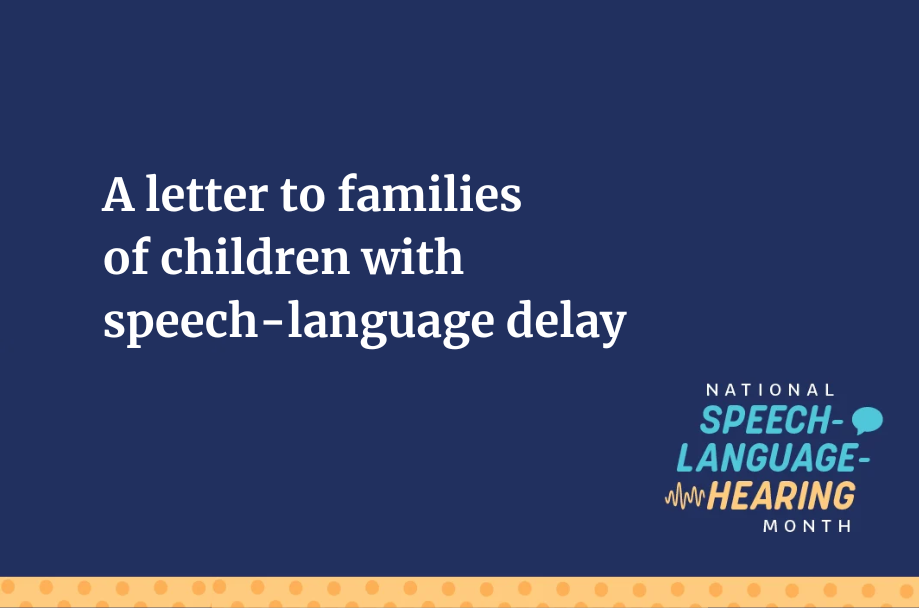Dear Families:
May is National Speech-Language-Hearing Month. This is a time to raise awareness about speech and language disorders, which are among the most common disabilities that school-aged children experience. This is also a time to help all students, no matter how they communicate, to feel included in their preschool and school communities.
More than 1 million children nationwide receive treatment services for speech and language disorders each year through the school system. Left unaddressed, speech and language disorders can affect a child’s academic and social success. Speech-language pathologists in preschools and schools work with children who have difficulties in the following areas:
Speech sounds — A child may substitute one sound for another, leave sounds out, add sounds, or change a sound. It may be hard for others to understand them.
Spoken and written language — A student may have trouble understanding what others are communicating to them and may have problems explaining what they are thinking or feeling. They may also have difficulty with learning how to read and write.
Stuttering (fluency) — A child may get stuck on certain sounds or words. They also may have tension or negative feelings about talking. This tension can get in the way of how they talk to others.
Cognition — A child may have problems with long- or short-term memory, attention, problem solving, or organization.
Social communication — A student may have difficulty understanding how others feel or following the rules of conversation, such as knowing how to take turns.
Voice — A child may lose their voice frequently or use a hoarse or breathy voice. They may also speak with strain or effort.
Augmentative and alternative communication — A child may need to find other ways to communicate besides talking, such as using a picture board or a speech-generating device.
Feeding and swallowing — Problems with feeding and swallowing can make it hard for a student to participate in the school day. Speech-language pathologists help students eat and drink safely during preschool or school day so that they have the energy to learn.
Whether or not your child has a speech, language, and/or swallowing disorder, it’s important for everyone to reflect on how we can be respectful and supportive to those who do. Encourage your child to give people time to get their message out, to focus on what a person is saying rather than how they’re saying it, and to never bully someone for how they communicate.
We wish you all success as we approach the end of the school year!
Shared with permission from the American Speech-Language-Hearing Association in recognition of May is National Speech-Language-Hearing Month.
